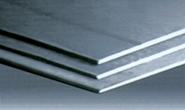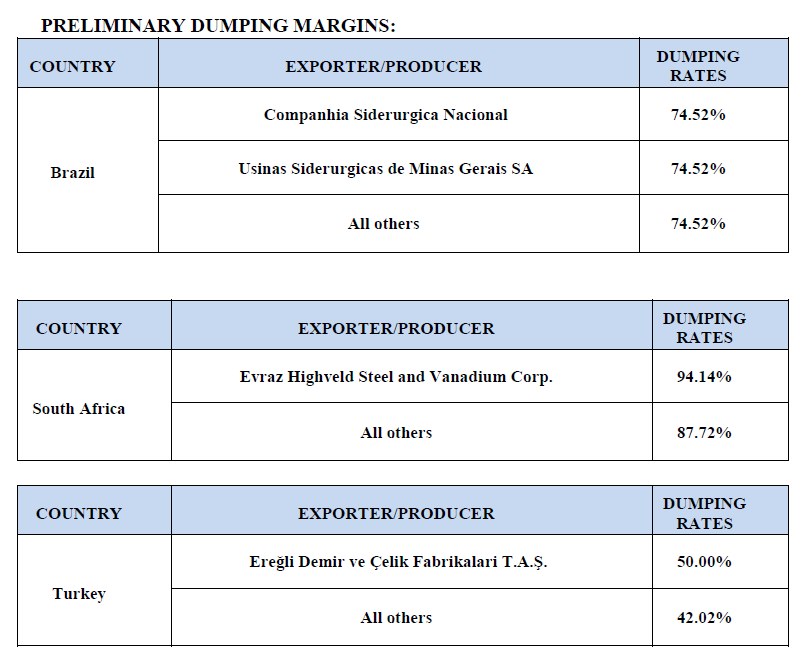Government/Policy

September 16, 2016
DOC Finds Dumping on CTL Plate from Brazil, South Africa, and Turkey
Written by Sandy Williams
Friday, the Department of Commerce announced its affirmative preliminary determinations in the antidumping investigations of imports of certain carbon and alloy steel cut-to-length plate (CTL plate) from Brazil, South Africa, and Turkey.
CTL plate is a flat-rolled carbon and alloy steel product that is 4.75 mm or more in thickness and that has a defined length (i.e., it is not in coils). CTL plate is used in a wide variety of applications including welded load-bearing and structural applications such as in buildings or bridgework; transmission towers and light poles; agricultural, construction, and mining equipment; machine parts and tooling; heaving transportation equipment like ships, rail cars, tankers and barges; and large diameter line pipe.
Commerce preliminarily determined that imports of CTL plate from Brazil, South Africa, and Turkey have been sold in the United States at dumping margins of 74.52 percent, 87.72 percent to 94.14 percent, and 42.02 percent to 50.00 percent, respectively. Mandatory respondents from all three countries were assigned margins based on adverse facts for failing to cooperate in the investigation.
Customs and Border Protection will be instructed to collect cash deposits based on the preliminary rates.
Critical circumstances were found by Commerce to exist for all exporters from Brazil and Turkey. Duties for these two countries will be retroactive effective 90 days prior to the Sept. 7, 2016 decision by Commerce.
The petitioners in this investigation are ArcelorMittal USA, Nucor, and SSAB.
Next Steps
Commerce is scheduled to announce its final determinations on Nov. 30, 2016, followed by a final determination of injury by the ITC in January 2017. If both determinations are affirmative, antidumping orders will be issued.








